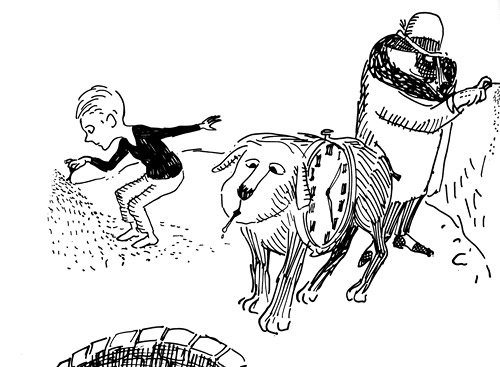I’ve been re-reading Norton Juster’s The Phantom Tollbooth, one of my favorite books from when I was a kid, and it still holds up. I remember really enjoying it for its wit and wordplay (even if a lot of it whizzed over my head), but the point of the story, in which Milo learns about Wisdom (including false understandings of such) and the dangers lurking in the Mountains of Ignorance, resonates much more strongly as an adult.
“Because, my young friends,” he muttered sourly, “what could be more important than doing unimportant things? If you stop to do enough of them, you’ll never get to where you’re going.” He punctuated his last remark with a villainous laugh.
“Then you must―” gasped Milo.
“Quite correct!” he shrieked triumphantly. “I am the Terrible Trivium, demon of petty tasks and worthless jobs, ogre of wasted effort, and monster of habit.”
“But why do only unimportant things?” asked Milo, who suddenly remembered how much time he spent each day doing them.
“Think of all the trouble it saves,” the man explained, and his face looked as if he’d be grinning an evil grin―if he could grin at all. “If you only do the easy and useless jobs, you’ll never have to worry about the important ones which are so difficult. You just won’t have the time. For there’s always something to do to keep you from what you really should be doing…”
And with that, I’d better get off Tumblr!


